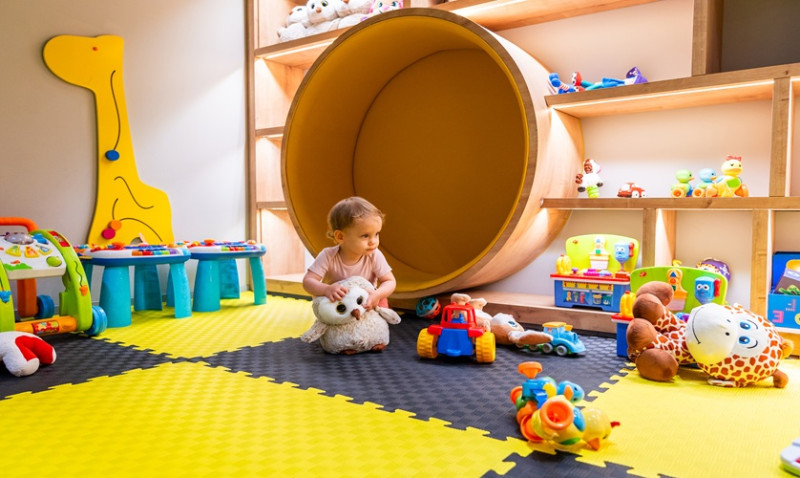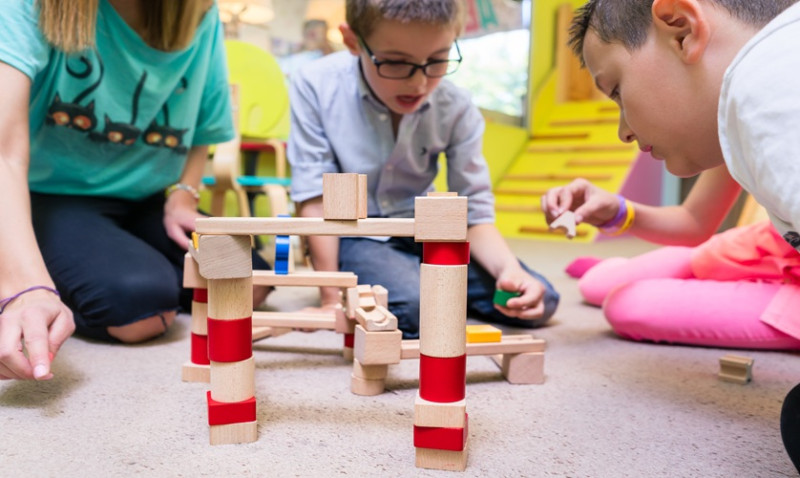
Choosing whether to send your child to daycare is one of the most emotionally charged and significant decisions a parent can make. While nursery care may seem like a convenient option for many working families — especially for the young professionals juggling busy work weeks and home life — there are many things to consider before settling on that route.
As a responsible parent, it's crucial to weigh both the pros and cons and understand how daycare can potentially affect your child’s development, behaviour, and well-being. Below, we share seven critical reasons why you may want to reconsider daycare and explore alternative options that align better with your family’s values, lifestyle, and your child’s unique needs.
1. Lack of Individual Attention
In a daycare setting, the staff-to-child ratio simply cannot match that of a private home environment. Even the best nurseries in the UK often face staffing shortages or struggle to dedicate significant one-on-one time to each child. When your child is one of a dozen or more in a single room, individualised attention can be stretched thin.
This lack of personal interaction can mean fewer learning opportunities, limited emotional bonding with caregivers, and reduced observation of early signs of developmental or behavioural concerns. Children thrive in environments where they feel seen, heard, and valued – something difficult to achieve in an overcrowded daycare centre.
For children with special needs or differing learning styles, the lack of tailored interaction can be especially challenging. These children can fall through the cracks, and their developmental milestones may be overlooked or neglected due to divided attention.
Alternatively, keeping your child at home (especially with a caregiver or parent) allows for constant interaction, better nurturing and well-observed developmental growth. Your child can also explore creativity, learning, and play at their pace without the constraints of a rigid curriculum.
2. Weakened Immune System From Constant Illness Exposure
It’s no secret that daycares can be breeding grounds for germs. With many children in close contact daily — sharing toys, books, and facilities — it’s inevitable that they become sick more frequently.
While some argue this builds immunity, the reality for many parents is repeated visits to the GP, sleepless nights, and missed workdays. Frequent colds, ear infections, and stomach bugs are common in the daycare environment, especially in the first years of life when your child’s immune system is still developing.
Being home, on the other hand, reduces this exposure significantly. While occasional outdoor playdates and small group activities still foster social interaction, they come without the same constant bacterial bombardment.
Less illness means more stability in your routine and fewer disruptions for both child and parents — a very attractive benefit for busy professionals who can’t afford repeated time off work or poor sleep due to sick children.
3. Behavioural Challenges Due to Over-Socialisation
It’s commonly believed that socialising children early prepares them for school and real-world interactions. While this is partially true, over-socialisation in the daycare structure can lead to the adoption of unwanted behaviours.
Children pick up habits from peers — good and bad. If your child is exposed to biting, hitting, shouting, or other behavioural issues from other children, they’re likely to mimic these traits. Staff may not always intervene appropriately or even be aware of the issue due to the busy environment.
Many children also struggle with overstimulation. Constant noise, bustling activities and a lack of quiet time can create anxiety or hyperactivity in some personalities. This can have long-term implications on emotional regulation and even academic readiness.
Providing your child a calm, nurturing, home-based environment allows you to guide their behaviour with intention. Children respond exceptionally well to gentle correction and calm learning — something that can happen more consistently at home or in a smaller childcare setting.
4. Misaligned Educational Priorities
Daycare staff often follow a generalised curriculum, designed to meet the average child’s developmental milestones. While this works for some, it can fail to align with your personalised educational goals for your child or reflect your family’s core values and way of life.
Perhaps you prefer play-based learning, Waldorf-inspired education, language immersion, or a religious-based foundation — selecting one daycare that meets all your priorities, especially in the UK’s urban areas, can be less than straightforward.
Additionally, key teaching moments like reading, imaginative play, basic numeracy or even simple chores can mean more when completed in a familiar, safe space and guided by a trusted adult — often a parent. This allows you to remain in full control of your child’s early development and instil the confidence and learning style that work best for them.
Ultimately, the home learning environment can be highly adaptable and truly tailored — something a rigid daycare system cannot guarantee.
5. Attachment Issues and Emotional Stress
One of the less-discussed outcomes of early daycare attendance is the emotional toll it may place on your child. Separation anxiety, feelings of abandonment, or emotional detachment can form as a result of being apart from caregivers for long stretches during formative months and years.
This is particularly true in children under two, where strong attachment bonds are the foundation of long-term emotional health. Sending your child to daycare prematurely — while it may free up time for work or productivity — can lead to increased clinginess at home, tantrums, or regressive behaviour.
Alternatively, keeping your child home (whether full-time or part-time) allows you to create a solid emotional foundation before gradually introducing them to external environments. This can prevent trust issues and increase feelings of security, helping your child develop healthy bonds with others later in life.
Attachment theory is widely accepted among psychologists, and many now urge parents to prioritise early emotional development over academic achievements or independent behaviour too early.
6. Expensive and Not Always Cost-Effective
Contrary to popular belief, daycare is often not a financially sound decision — especially if you’re earning an average salary or juggling multiple children. Across the UK, full-time daycare costs can range from £50 to over £90 per child per day depending on location and quality of care.
Many families find themselves funneling a significant portion of household income into childcare alone. Add up the costs over months and years, and it’s not uncommon to see tens of thousands of pounds extinguished – money that could have been used toward mortgage payments, home improvement, savings, or holidays.
| Average Weekly Daycare Cost (Full-Time) | Monthly Cost | Annual Cost |
|---|---|---|
| £275 | £1,100 | £13,200 |
| £350 | £1,400 | £16,800+ |
Instead of daycare, consider alternatives such as shared nannying, a local childminder, or flexible remote work arrangements that allow for part-time caregiving. It may also be more cost-effective for one parent to reduce working hours or temporarily pause a career during the early years, if financially feasible.
7. Limited Influence Over Daily Routine and Values
When your child is spending 8-10 hours a day with other adults, most of their key behavioural reinforcement and daily decisions are out of your control. What they eat, how and when they sleep, the friends they make, even the words and values they are exposed to, are all shaped by staff and surroundings that you trust but may not always align with your home values.
For many families, this inconsistency between home and daycare can be frustrating. Mixed messages around discipline, manners, responsibility, or screen time can affect your child’s understanding of boundaries and expectations.
Raising children is not just about filling their time – it’s about instilling discipline, imagination, critical thinking and kindness. If your child’s external environment doesn’t support and reflect the same messages being taught at home, confusion and behavioural pushback can often emerge.
Keeping your child at home, supervised by you or a trusted family member or caregiver, ensures that these values remain consistent — creating a more harmonious upbringing and reducing the mixed-signal stress many working families face.
Final Thoughts
Daycare isn’t a one-size-fits-all solution. While it may provide convenience and structure for some families, there are significant reasons to pause and reconsider whether it's right for your child. From emotional development and behaviour to cost burden and health concerns, the impact of early daycare should not be underestimated.
If you're in a position to explore alternatives — whether through flexible working, family support, or smaller local care settings — it may be well worth the effort. The early years race by quickly, and these precious moments can shape your little one's future in more ways than one.
Ultimately, choosing what's best for your family means assessing your priorities, resources and long-term vision for your child’s development. And sometimes, staying close to home is the most powerful foundation you can offer.



